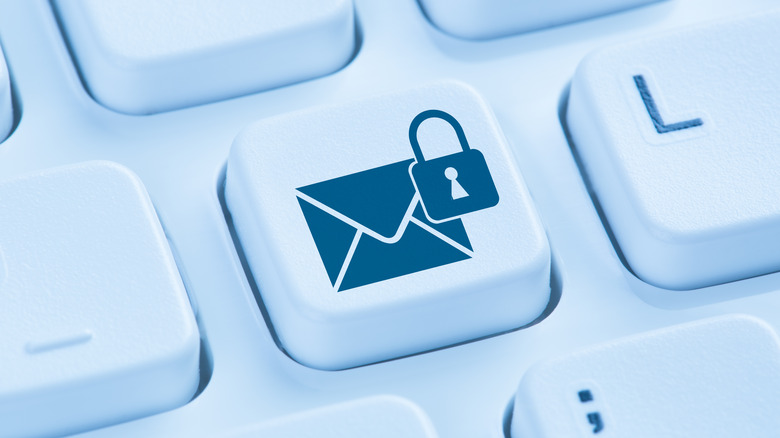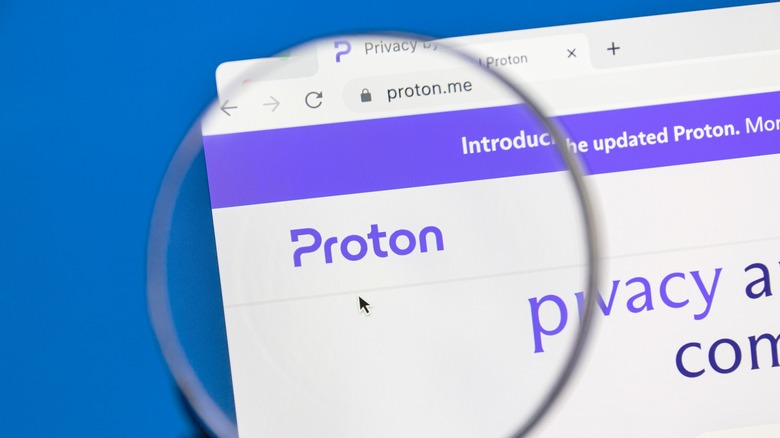How To Encrypt Your Emails (And Why You Should)
Encryption comes in different forms and has been used by different services for years. Messaging platforms such as WhatsApp and Signal use end-to-end encryption to safeguard messages, ensuring that only the sender and intended recipient can access the content. Similarly, email encryption is a valuable tool, and while it may not be something the average user considers important, it's quite useful for you — not just big businesses that have to safeguard sensitive information from interception.
Cases of hackers getting access to emails are fairly widespread. According to SurfShark, over 110 million accounts were compromised during the second quarter of 2023. This represents a substantial increase — 2.6 times greater than the number of breaches reported in the first quarter (43.2 million). And while the average individual user certainly isn't experiencing a hack volume that high, it doesn't mean it will never happen to you. That's why encryption is important for you too.
Why should you encrypt your emails?
Think of encrypting your emails like getting a vaccine for an illness you may never catch. Even if your email hasn't been compromised in a data breach before, email encryption is still crucial. It might take a bit of technical know-how, but the benefits are worth it. Ultimately, it's all about keeping your personal and sensitive information safe from potential leaks due to unauthorized access by not just hackers, whether through a data breach or the interception of some specific emails, but even government agencies as well.
This protection extends beyond the risk of losing account information and passwords. In fact, it can prevent more severe consequences, such as identity theft, where malicious actors could assume your identity by posing as you to your friends, family, or coworkers and cause lots of damage, including financial. In essence, email encryption is like a digital shield for your privacy and security.
Encrypting your email
Different methods are available to encrypt your emails, and the process might seem like a puzzle, especially if you're juggling different devices and email accounts. Some encryption services are made exclusively for iOS devices and macOS, while others may solely be compatible with Android or Windows. There's good news, however. You can keep things simple and secure to ensure consistent email encryption across all your devices using ProtonMail. You should note that ProtonMail email addresses are encrypted by default but when sending to other Email client addresses like Gmail and Yahoo mail, you'll have to set up an encryption. To do this:
-
Create a ProtonMail Account.
-
Access your Mail dashboard and tap Compose.
-
Enter the Recipient's Email Address, add a Subject and Message
-
Click on the lock icon at the bottom of the messaging tab.
-
You will be prompted to set a unique password for your email.
-
Confirm the password and click SET.
-
Tap Send.
When your recipient gets your message, they'll need to use the password you set to unlock and read it. This extra layer of security ensures that even if someone intercepts your messages, they won't be able to read them without the password, thereby safeguarding the email's content.


